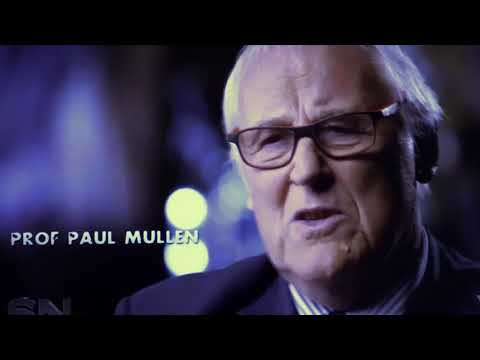Q: (Ark) That was about Dimi. Last question: I would like to know if there is some most important law that governs all of the creation. We know conservation of energy is an important law. You can think about conservation of information. Maybe there is such a law? This John Archibald Wheeler who we quoted several times, he added his own law which is kind of timeless which says that it's pure geometric boundary which says boundary is zero. Another possible law is: As above, so below. Okay. Is there any kind of a fundamental physical law? Well, not physical... Some fundamental law of creation?
A: Free will.
I thought the following passage from Collingwood's 'The Idea of History' might be worth noting
Natural science, raised by positivism to the rank of metaphysics, conceives reality as a system of processes governed everywhere by the law of causality. Everything is what it is because it is determined by something else.
Spiritual life is a world whose reality is its freedom or spontaneity: not a lawless or chaotic world, but a world whose laws are freely made by that same spirit which freely obeys them. If such a world exists at all, the metaphysics of positivism must be fallacious. Consequently it must be shown that this metaphysics is unsound; it must be attacked on its own ground and refuted there. In other words, it must be shown that however much the methods of natural science may be justified in their own sphere, this sphere is something short of reality as a whole; it is a limited and dependent reality, dependent for its very existence on the freedom or spontaneity which positivism denies. * Ravaisson’s spiritualism and Lachelier’s idealism Ravaisson[53] in the sixties took the first step towards such an argument by contending that the conception of reality as mechanical, or governed by efficient causes, cannot stand as a metaphysical doctrine because it fails to give any account of the whole within which these causes operate. In order that this whole should exist and maintain itself there must be in it not only a principle of efficient causation, linking part to part, but also a principle of teleology or final causation, which organizes the parts into a whole. This is Leibniz’s conception of a synthesis of efficient and final causes, together with the further doctrine, also derived from Leibniz, that our knowledge of the teleological principle is derived from our consciousness of it as the working principle of our own minds. Our knowledge of ourselves as spirit, as a self-creative and self-organizing life, thus enables us to detect a similar life in nature; and (although positivism fails to see this) it is only because nature is a teleologically living organism that there are causal relations between its parts. Here we see an attempt to establish the reality of spirit by resolving the reality of nature itself into spirit; but we already know, from our analysis of later German thought, that such a resolution not only fails to do justice to natural science, by denying that there is anything genuinely natural, but endangers the conception of spirit by identifying it with something that is to be found in nature. The danger is that a third term, neither mere nature nor genuine spirit, tends to be substituted for both. This third term is life, conceived not as spiritual life or the process of mind, but as biological or physiological life, a fundamental conception in the work of Bergson.
In order to escape this danger it was necessary to insist that the life of the spirit is not mere life but rationality, that is, the activity of thinking. The man who saw this was Lachelier, one of the greatest of modern French philosophers. During his long life as a teacher, to whom in that capacity French thought owes an incalculable debt, Lachelier published little, but what he did publish is a model of profound thought and clear expression. His brief essay on Psychology and Metaphysics[54] is a masterly exposition of the thesis that psychology, as a naturalistic science, cannot grasp mind as it actually is; it can only study the immediate data of consciousness, our sensations and feelings; but the essence of mind is that it knows, that is, has as its objects not mere states of itself but a real world.
What enables it to know is the fact that it thinks; and the activity of thought is a free or self-creative process, which depends on nothing else except itself in order to exist. If then we ask why thought exists, the only possible answer is that existence itself, whatever else it may be, is the activity of thinking.The centre of Lachelier’s argument here is the idea that knowledge itself is a function of freedom; it is only because the activity of spirit is absolutely spontaneous that knowledge is possible. Hence natural science, instead of casting doubt on the reality of spirit by failing to discover it in nature, or vindicating it by discovering it there (which it can never do), vindicates it in a quite different way, by being itself a product of spiritual activity in the scientist.
This clear conception of the life of spirit as a life that is both freedom and knowledge and also knowledge of its own freedom, a life which no scientific thought can detect or analyse in psychological terms, is just what we found lacking in the German school. It is not yet a theory of history, but it is the basis of such a theory.
Collingwood, R. G.. The Idea of History (pp. 223-225). Lume Books. Kindle Edition.




